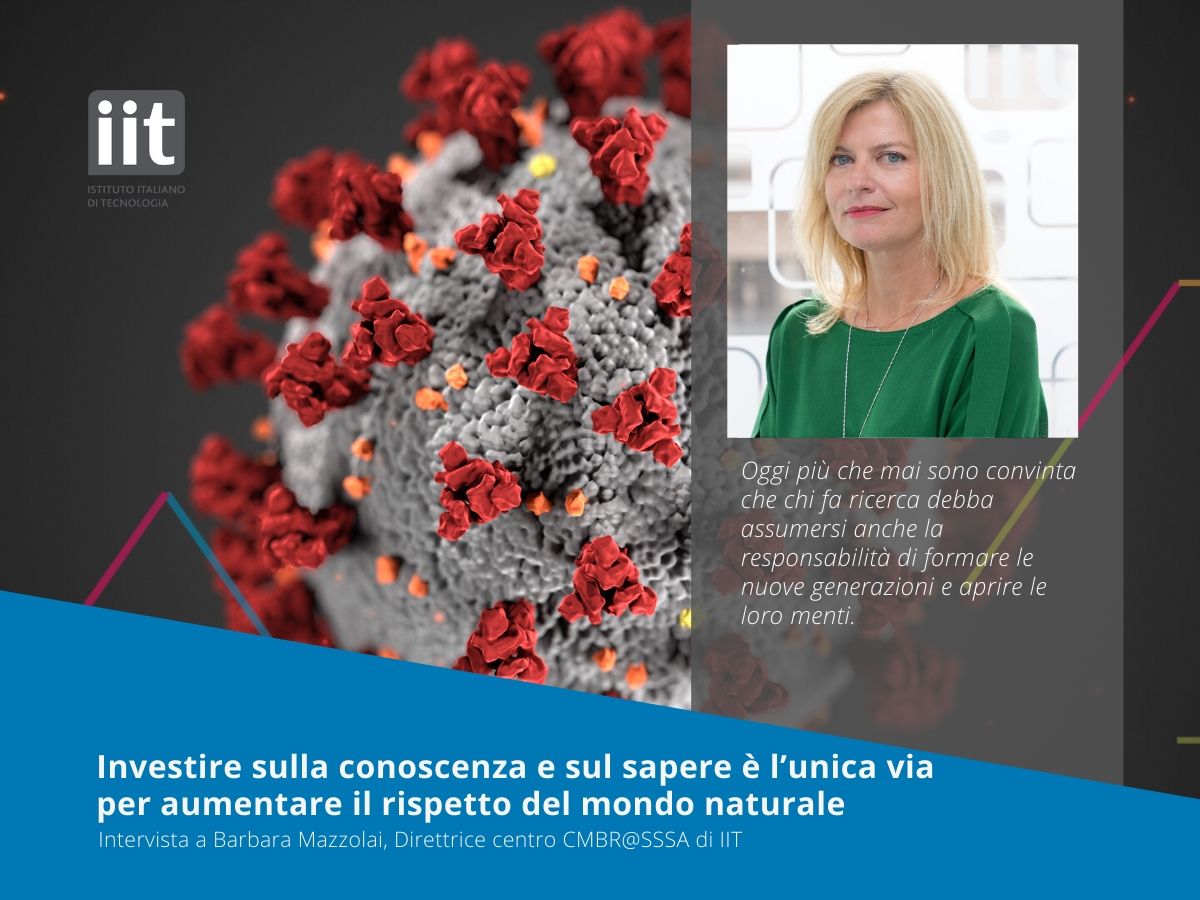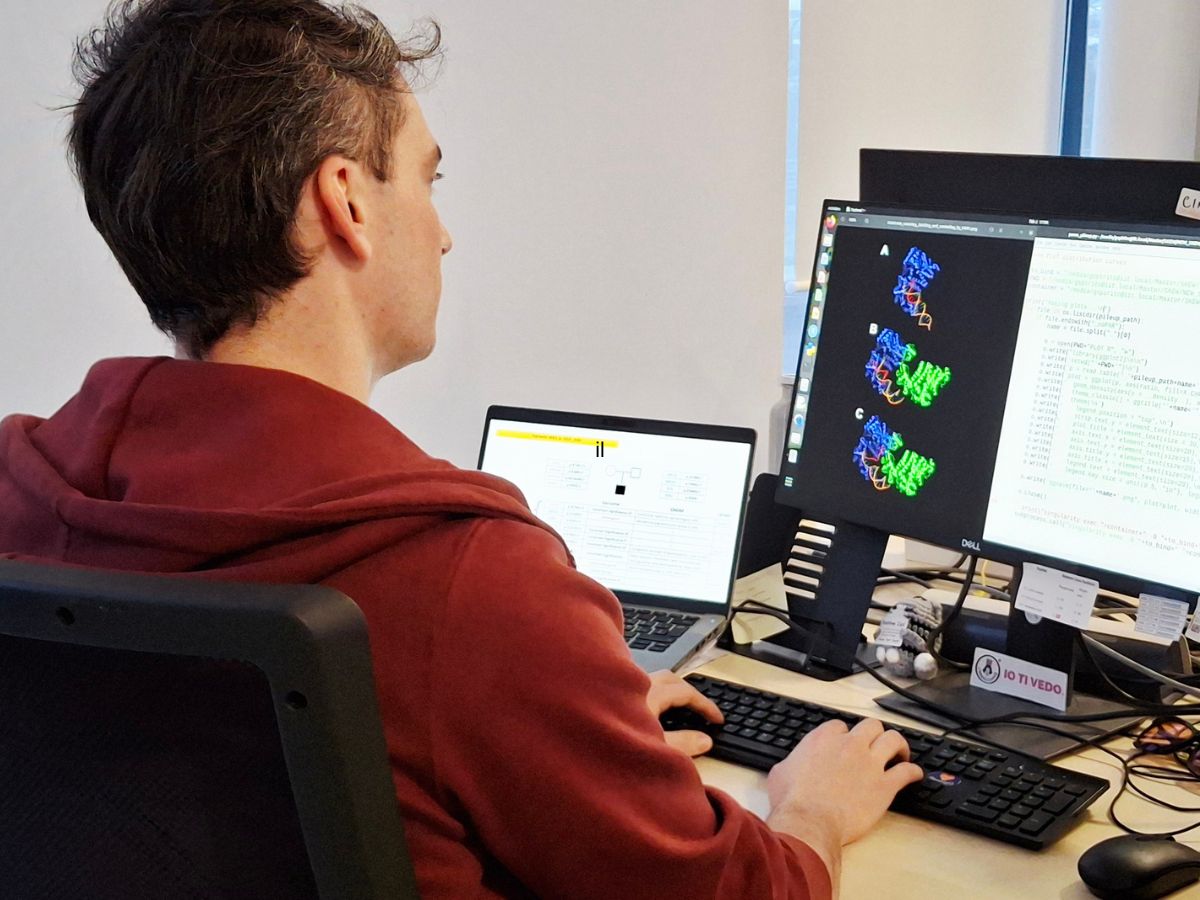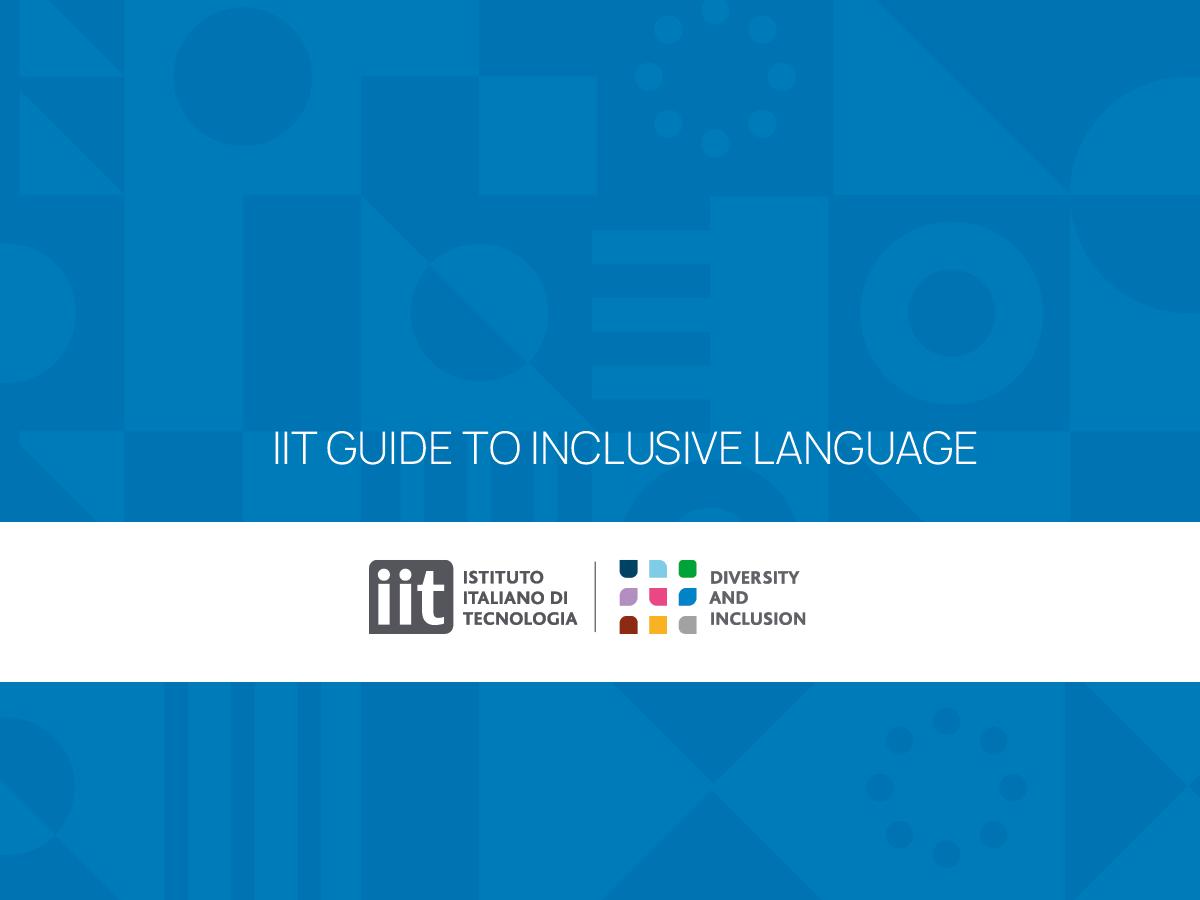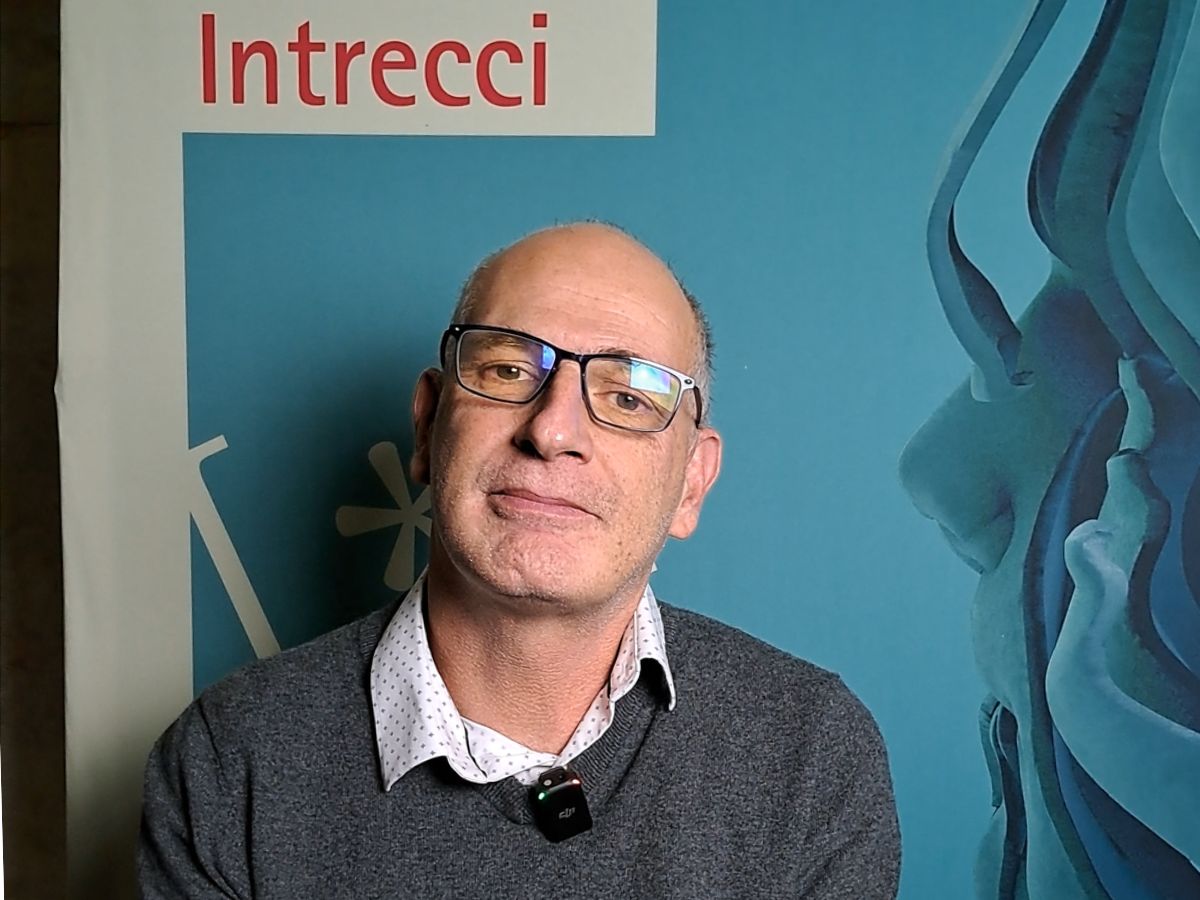Interview with Barbara Mazzolai, Director of the IIT Center for Micro-BioRobotics
Your last essay has a great title, “La natura geniale” (Ingenious Nature). Reading it was highly informative. It is a work pervaded by positivity, optimism and trust towards a future where man and robot construct a new world. Then the coronavirus. And now we remain stunned as we contemplate our impotence. Don’t you think that nature has taken its revenge?
I don’t think this is nature’s position. We tend to think that we are the point of reference for what happens in natural processes. This anthropocentric vision comes from the past, but is still deep-rooted in the human being. Through our actions, we have certainly upset the balance of ecosystems and the way of life of many organisms, including ourselves. A Harvard University study has recently been reported to prove the correlation between the higher incidence of Covid-19 and air pollution. Ultra-fine particles, i.e. polluting micro- and nanoparticles produced by industrial, car and heating processes penetrate the alveoli of the lungs and then into the blood, with negative consequences for the body. These particles appear to function as carriers for the virus, which may reach the lungs more easily.
We have upset natural habitats by reducing green spaces, burning secular and tropical forests, the real ‘lungs’ of the planet, with a consequent and progressive approach of wild and exotic animals towards centres inhabited by man, with an increase in the possibility of contact between us and them.
It is not nature that has taken revenge. It is us who have not yet understood that we are part of it.
This crisis will pass and we will realise that in the meantime, the ecosystem continues to change negatively. The temperature of the planet is increasing, pollution is constant and the climate summits among the “top dogs” do not lead to results. Will your bio-inspired robots be an inescapable example also for a change of mentality from the decision makers?
Bio-inspired robotics could play an important role as a tool of knowledge, as well as in addressing practical problems in unstructured, real environments, outside of ‘factories’. This robotics is based on principles covered by the foundations of biology, chemistry and physics. Its advent is changing the way we observe and study living beings and their interactions, to understand their functioning and subsequently transpose the mechanisms of the living into non-biological systems. In the years to come these robots will be tools in the hands of scientists to validate hypotheses on the functioning of the biological model, but they will also be platforms for educational purposes, to help a child understand how a plant or a bacterium works, for example, rather than an animal that lives on the ground. Life forms that seem to be quite separate from us, yet which in fact play a fundamental role in the functioning of terrestrial ecosystems. Investing in knowledge is the only way to increase respect for the natural world, which is now not only a duty, but a fundamental necessity for the progress and survival of humankind itself.
Sustainability will be the watchword in our worrying future and one of the most valued features your robots have is their low-energy consumption. The future of the planet in terms of energy can only be developed if emissions decrease. Already today we are witnessing the collapse of the demand for oil. What do plants teach us in the virtuous circle of energy production?
Plants have a sessile life, i.e. they are rooted in the ground where they germinate, so they cannot physically move like most animals. This aspect has allowed them to develop adaptive capacities that enable them to best ‘exploit’ the resources found in the surrounding environment with minimal energy expenditure. One example is their passive movements, which exploit the energy available in the environment – in the form of humidity or light, for example – like those associated with the movement of seeds. A pine cone that opens and closes in particular conditions of heat and humidity, or a spelt seed that penetrates the ground, are just some of the best-known cases: both move thanks to the interaction between the materials from which they are composed and the humidity level of the air and they represent an admirable example of energy efficiency. Another example of energy efficiency is the strategy adopted by the roots to move in the soil. Movement in the soil occurs thanks to the addition of new cells at the root tip, their root apex. Despite its delicate and slender structure, the root tip manages to exert high pressures on the surrounding soil during its growth, penetrating even in very compact or even rocky soils, reducing friction and consequently, the energy needed to move.
There are too many examples to cite. Plants represent an evolutionary alternative almost mirroring that of the animal world: while men and animals have very often evolved by favouring characteristics related to the speed of movement, the plant world has made slowness – and therefore, also low energy consumption – the origin of its incredible resilience.
Your works show how research – even the most complex and risky – when it achieves success, takes the form of technological products that involve the widest public. It is the best demonstration of science that opens up to the world and supports its development. What will the relationship between scientist and society be like in the future?
I believe that it is the task of science to raise awareness among the humanity of the new millennium of the strategic importance that protecting the environment has for our future. Research will increasingly have to go beyond the barricades that still fragment knowledge in non-communicating sectors, to create a research space that goes beyond the current notions of “discipline” and the boundaries of knowledge now acquired. Even so, the scientist will open up to society and its needs.
However, research cannot set technological innovation and scientific progress as the only objectives. Today more than ever I am convinced that those who do research must also take on the responsibility of training the new generations and opening their minds, so that new knowledge becomes synonymous with respect for the other, for what is different, for different forms of life.






